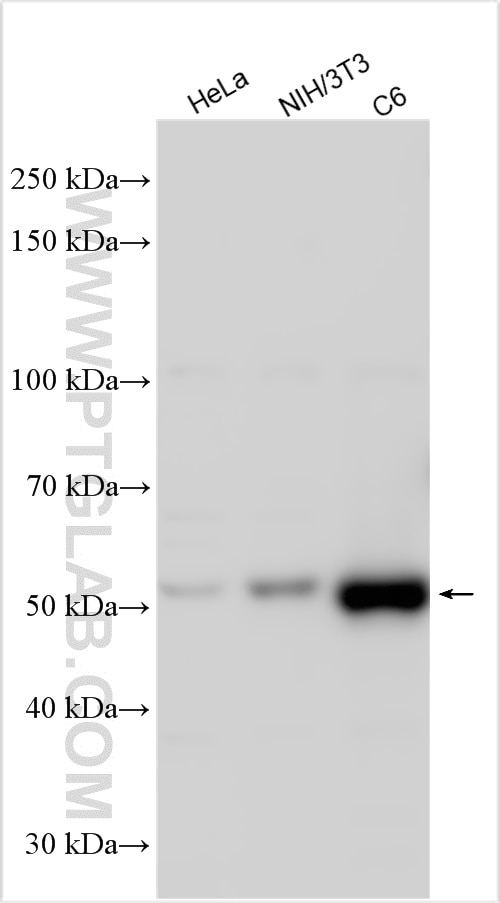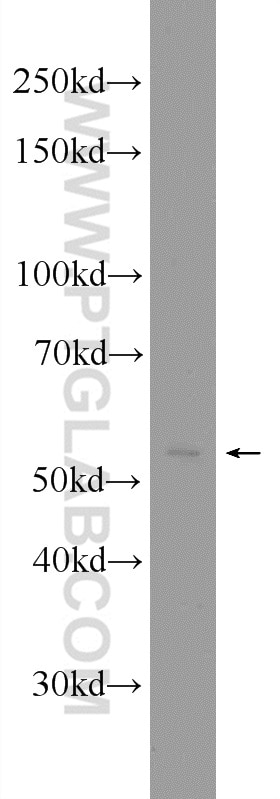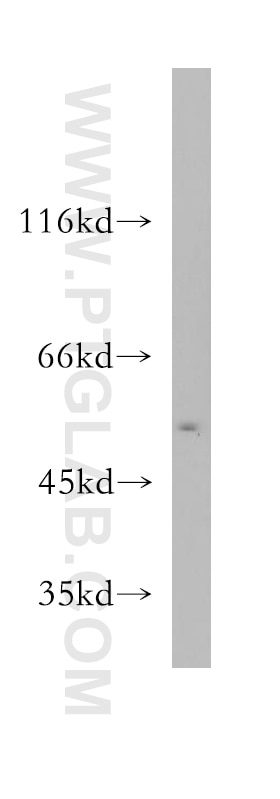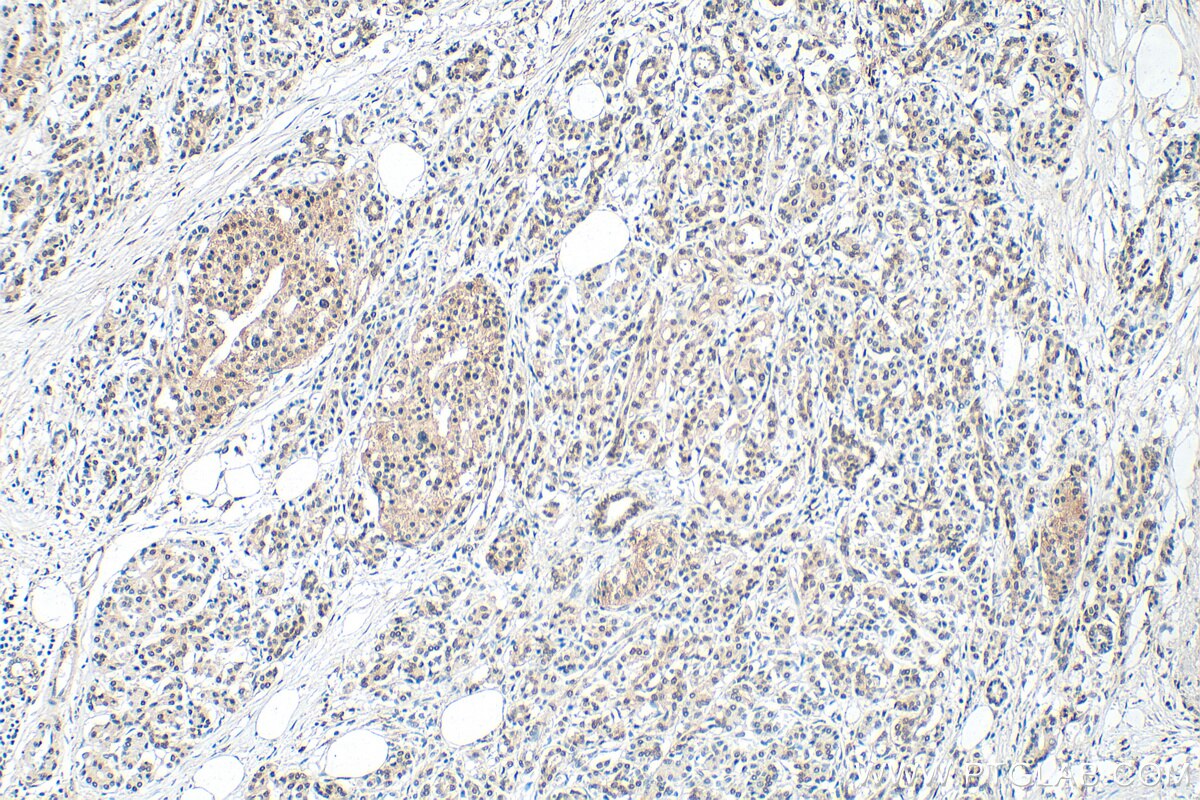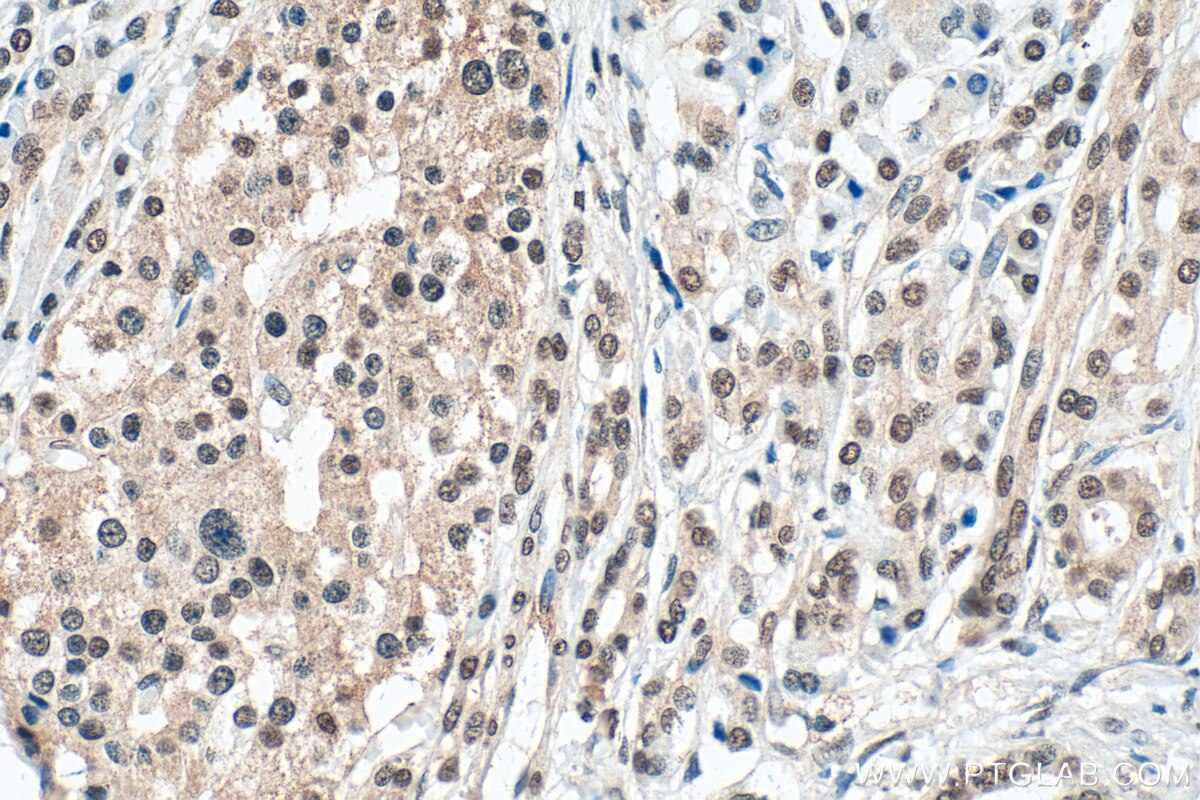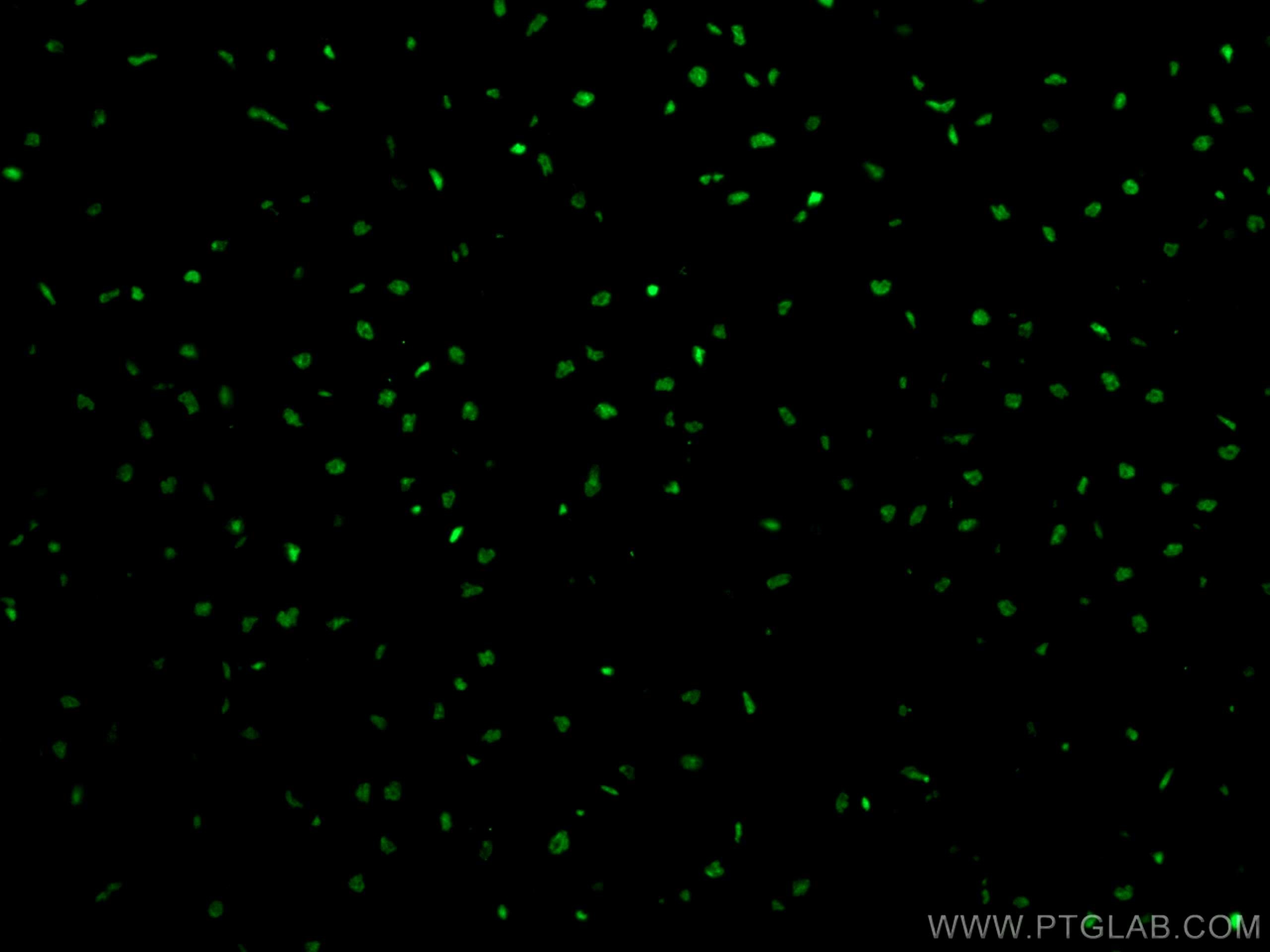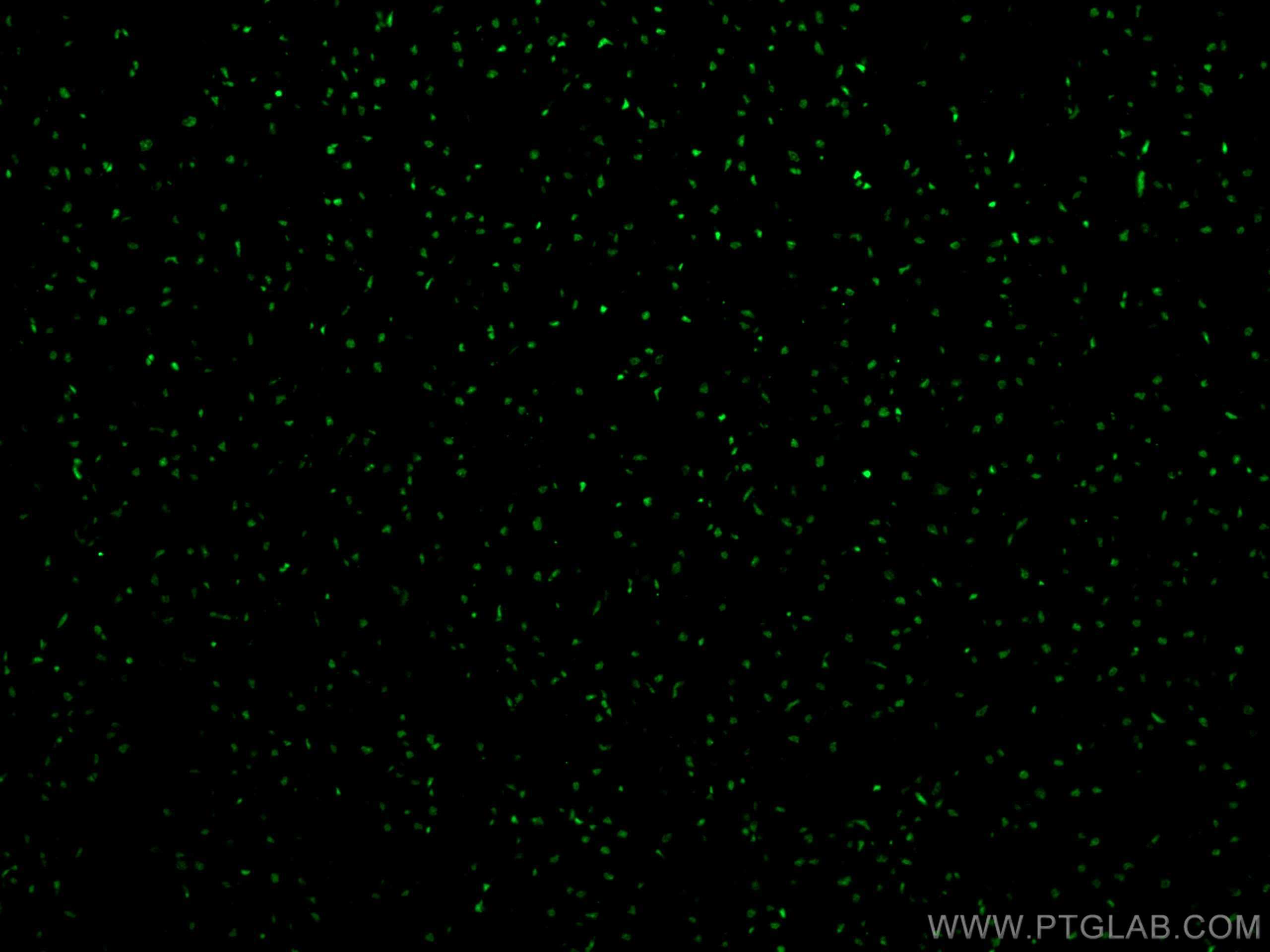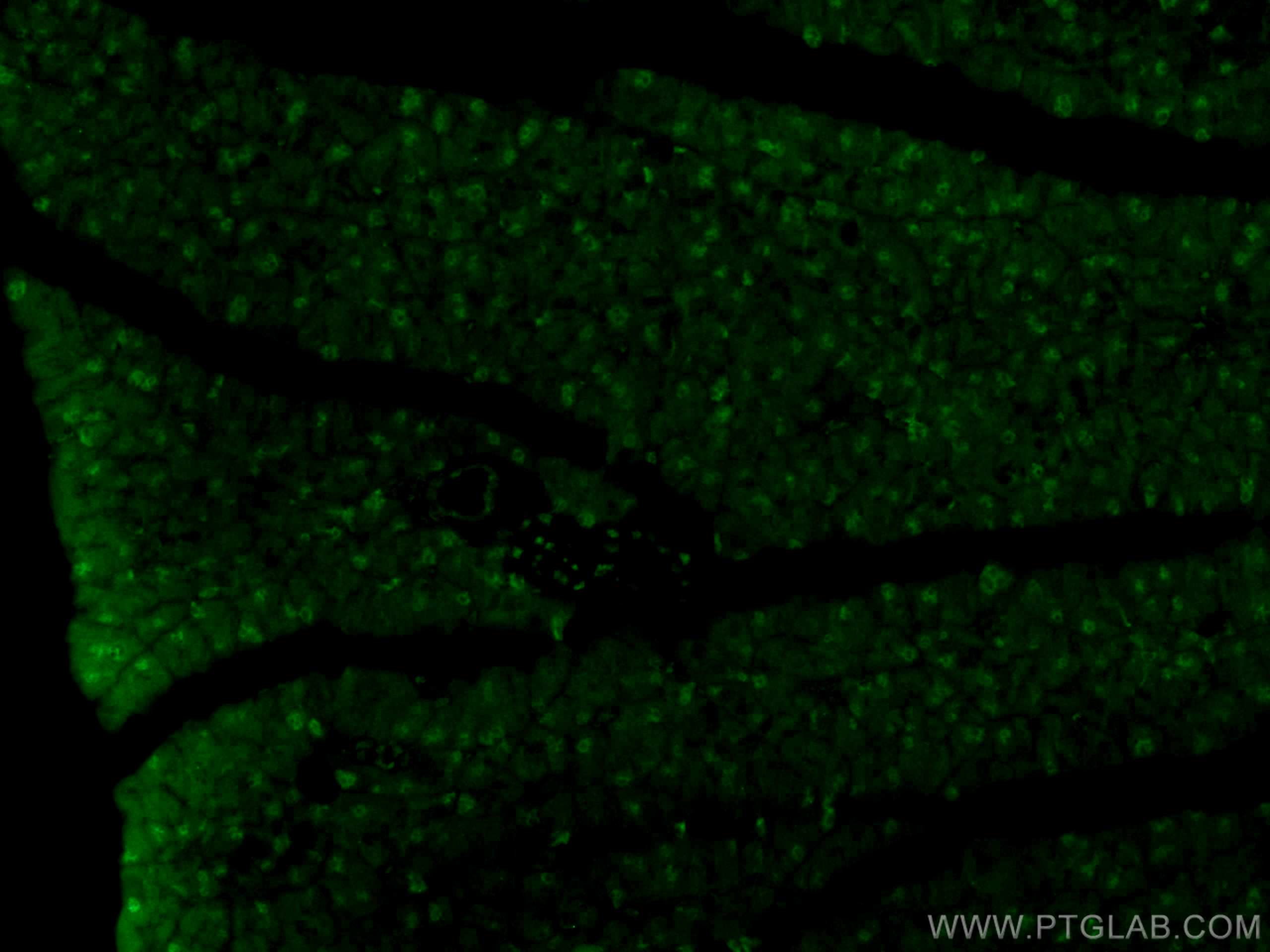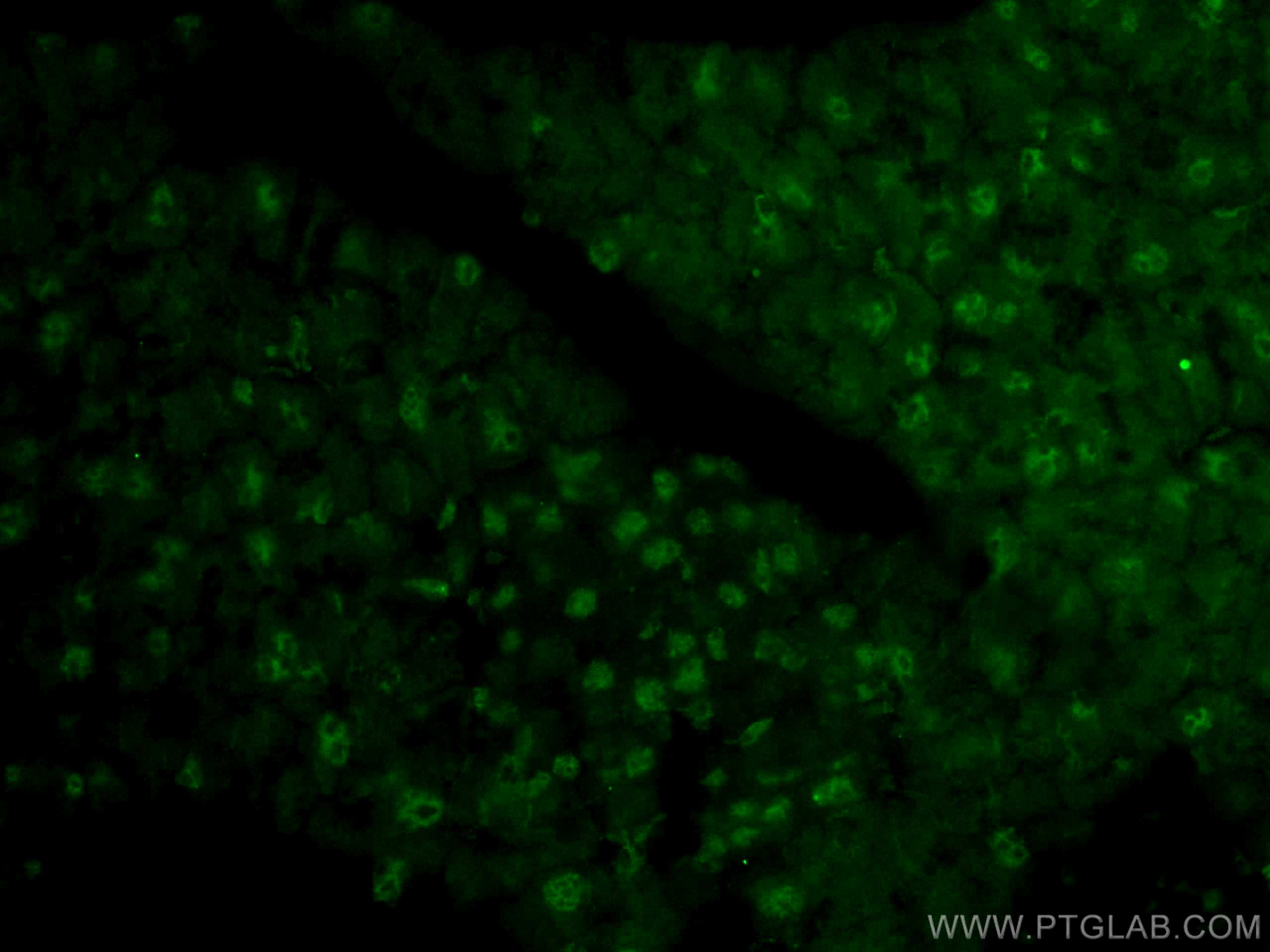Anticorps Polyclonal de lapin anti-SMARCD3
SMARCD3 Polyclonal Antibody for WB, IHC, IF-P, ELISA
Hôte / Isotype
Lapin / IgG
Réactivité testée
Humain, rat, souris
Applications
WB, IHC, IF-P, ELISA
Conjugaison
Non conjugué
N° de cat : 12838-1-AP
Synonymes
Galerie de données de validation
Applications testées
| Résultats positifs en WB | cellules HeLa, cellules BxPC-3, cellules C6, cellules NIH/3T3 |
| Résultats positifs en IHC | tissu de cancer du pancréas humain, il est suggéré de démasquer l'antigène avec un tampon de TE buffer pH 9.0; (*) À défaut, 'le démasquage de l'antigène peut être 'effectué avec un tampon citrate pH 6,0. |
| Résultats positifs en IF-P | tissu cardiaque humain, tissu pancréatique de souris |
Dilution recommandée
| Application | Dilution |
|---|---|
| Western Blot (WB) | WB : 1:500-1:3000 |
| Immunohistochimie (IHC) | IHC : 1:200-1:800 |
| Immunofluorescence (IF)-P | IF-P : 1:50-1:500 |
| It is recommended that this reagent should be titrated in each testing system to obtain optimal results. | |
| Sample-dependent, check data in validation data gallery | |
Applications publiées
| WB | See 6 publications below |
| IHC | See 1 publications below |
Informations sur le produit
12838-1-AP cible SMARCD3 dans les applications de WB, IHC, IF-P, ELISA et montre une réactivité avec des échantillons Humain, rat, souris
| Réactivité | Humain, rat, souris |
| Réactivité citée | Humain, souris |
| Hôte / Isotype | Lapin / IgG |
| Clonalité | Polyclonal |
| Type | Anticorps |
| Immunogène | SMARCD3 Protéine recombinante Ag3896 |
| Nom complet | SWI/SNF related, matrix associated, actin dependent regulator of chromatin, subfamily d, member 3 |
| Masse moléculaire calculée | 54 kDa |
| Poids moléculaire observé | 54-55 kDa |
| Numéro d’acquisition GenBank | BC002628 |
| Symbole du gène | SMARCD3 |
| Identification du gène (NCBI) | 6604 |
| Conjugaison | Non conjugué |
| Forme | Liquide |
| Méthode de purification | Purification par affinité contre l'antigène |
| Tampon de stockage | PBS with 0.02% sodium azide and 50% glycerol |
| Conditions de stockage | Stocker à -20°C. Stable pendant un an après l'expédition. L'aliquotage n'est pas nécessaire pour le stockage à -20oC Les 20ul contiennent 0,1% de BSA. |
Informations générales
SMARCD3 is a component of the SWI/SNF (mating type switching/sucrose non-fermenting) chromatin remodeling complex, which evolutionarily conserved from yeast to human, and all complexes contain a core set of conserved components, including BRG1/Brm-associated factors (BAFs) and a DNA-dependent SWI2/SNF2-like ATPase, which enables chromatin remodeling. SMARCD3 isoforms bind to several nuclear receptors and transcription factors of various families. SMARCD3 proteins interact in a ligand-independent manner with peroxisome proliferator- activated receptor gamma and enhance its transcriptional activity.
Protocole
| Product Specific Protocols | |
|---|---|
| WB protocol for SMARCD3 antibody 12838-1-AP | Download protocol |
| IHC protocol for SMARCD3 antibody 12838-1-AP | Download protocol |
| IF protocol for SMARCD3 antibody 12838-1-AP | Download protocol |
| Standard Protocols | |
|---|---|
| Click here to view our Standard Protocols |
Publications
| Species | Application | Title |
|---|---|---|
Cell Discov m6Am methyltransferase PCIF1 is essential for aggressiveness of gastric cancer cells by inhibiting TM9SF1 mRNA translation. | ||
Cardiovasc Res The G protein coupled receptor Apj is expressed in the second heart field and regulates Cerberus-Baf60C axis in embryonic stem cell cardiomyogenesis. | ||
Transl Oncol SNF5, a core subunit of SWI/SNF complex, regulates melanoma cancer cell growth, metastasis, and immune escape in response to matrix stiffness. | ||
Cells The SMARCD Family of SWI/SNF Accessory Proteins Is Involved in the Transcriptional Regulation of Androgen Receptor-Driven Genes and Plays a Role in Various Essential Processes of Prostate Cancer | ||
Nat Cardiovasc Res Translational landscape of direct cardiac reprogramming reveals a role of Ybx1 in repressing cardiac fate acquisition | ||
Prostate Low SMARCD3 expression is associated with poor prognosis in patients with prostate cancer |
